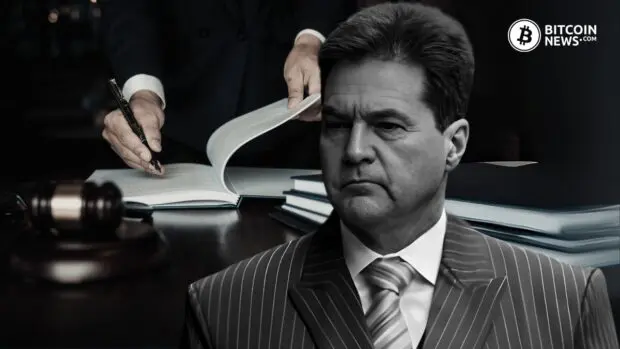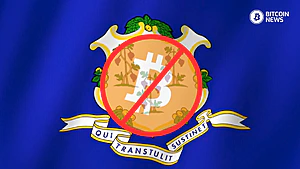In a landmark decision, a high court judge has ruled that Australian computer scientist Craig Wright is not the elusive inventor of Bitcoin, known as Satoshi Nakamoto. The verdict comes after a series of legal battles and trials spanning several months, where Wright faced scrutiny over his claims to be the creator of the world’s most famous digital currency.
The Verdict
The presiding judge, Justice Mellor, delivered the verdict swiftly, stating that the evidence against Wright was “overwhelming.” Mellor declared:
“However, having considered all the evidence and submissions presented to me in this trial, I’ve reached the conclusion that the evidence is overwhelming.
First, Dr. Wright is not the author of the Bitcoin white paper.
Second, Dr Wright is not the person who adopted or operated under the pseudonym Satoshi Nakamoto in the period 2008 to 2011.
Third, Dr Wright is not the person who created the bitcoin system.
And, fourth, he is not the author of the initial versions of the bitcoin software. Any further relief will be dealt with in my written judgment.”
This ruling effectively dismisses Wright‘s assertions of being Satoshi Nakamoto.
Background
Wright’s claims to be the mysterious figure behind Bitcoin have been met with skepticism since they surfaced in 2016. Despite his persistent assertions, experts have cast doubt on the validity of his evidence. Wright’s insistence on his identity as Satoshi Nakamoto has led to numerous legal battles, with individuals and groups challenging his narrative.
COPA Legal Battle
The trial, held at the High Court in London, was initiated by the Crypto Open Patent Alliance (COPA), a consortium of Bitcoin companies. COPA aimed to prevent Wright from wielding undue influence over the Bitcoin sector by leveraging his alleged status as Bitcoin’s creator. Their legal challenge accused Wright of fabricating evidence and engaging in deceptive practices.
Jonathan Hough KC, representing Copa, informed the high court that Wright’s assertion was “a brazen lie and [an] elaborate [series] of false narrative[s] supported by forgery on an industrial scale”.
“On the basis of his dishonest claim to be Satoshi, he has pursued claims he puts at hundreds of billions of dollars, including against numerous private individuals.”
Wright’s defense expert witnesses agreed with several assessments, confirming that the initial Bitcoin document was created with OpenOffice software. In contrast, Wright’s version was crafted using LaTeX.
During the trial, Wright expressed doubts about Dr. Simon Placks, his appointed expert, citing Placks’ lack of qualifications in information security. Wright clarified “I didn’t choose Dr Placks, I didn’t want Dr Placks.”
He added:
“Dr Placks is a psychologist. He has a degree in psychology. He has no qualifications in information security.”
When asked whether “the expert called by your side is not a suitably qualified expert to give evidence on what he covers in his reports”, Wright confirmed this assertion.
Expert Testimony
Throughout the trial, expert witnesses presented evidence challenging Wright’s claims. They highlighted discrepancies in documents provided by Wright and raised concerns about the authenticity of his assertions. COPA’s legal team accused Wright of engaging in a “massive campaign of dishonesty and forgery,” underscoring the gravity of the situation.
COPA additionally seeks legal action against Wright for alleged forgeries, some purportedly generated using ChatGPT. They’ve requested UK criminal courts to review these claims, potentially leading to fines or imprisonment. Hough accused Wright of fraud during trial, urging Britain’s Crown Prosecution Service to investigate perjury and obstruction of justice allegations.
Judge’s Assessment
Justice Mellor’s ruling addressed key points of contention in the trial. He affirmed, “Dr. Wright is not the person who adopted or operated under the pseudonym Satoshi Nakamoto.”
This declaration strikes at the core of Wright’s claims, effectively dismantling his narrative of being the mastermind behind Bitcoin’s inception. Justice Mellor will delay his final decision for at least 21 more days. It remains uncertain if Wright will be prohibited from asserting he is Bitcoin’s creator. Mellor emphasized the judgment will “be ready when it’s ready and not before.”
Impact on the Bitcoin Community
The verdict has significant implications for the Bitcoin community. It signals a victory for transparency and integrity within the industry, as COPA spokesperson highlighted:
“This decision is a win for developers, for the entire open source community, and for the truth. For over eight years, Dr Wright and his financial backers have lied about his identity as Satoshi Nakamoto and used that lie to bully and intimidate developers in the bitcoin community. That ends today with the court’s ruling that Craig Wright is not Satoshi Nakamoto.”
Dorsey celebrated victory on X, quoting Mellor’s clear rejection of Wright’s claims. COPA also rejoiced in the win.
Craig Wright’s Response
Following the court’s ruling, Craig Wright declined to comment on the outcome of the trial. However, his legal team had previously opposed COPA’s attempts to seek injunctions against him, arguing that such measures would infringe on his freedom of expression.
Lord Anthony Grabiner, representing Wright, asserted that the proposed injunctions could be “sinister.” Grabiner noted: “such a prohibition is unprecedented in the UK and would prevent Wright from even casually going to the park and declaring he’s Satoshi without incurring fines or going to prison.”
Conclusion
The high court’s ruling unequivocally rejects Craig Wright’s claims to be Satoshi Nakamoto, the inventor of Bitcoin. The decision underscores the importance of evidence-based claims and integrity. As the dust settles on this legal battle, the community eagerly await the final verdict of the case.
COPA’s spokesperson highlighted the anticipation for this decision, adding:
“We are seeking to enjoin Dr. Wright from ever claiming to be Satoshi Nakamoto again and in doing so avoid further litigation terror campaigns.”










